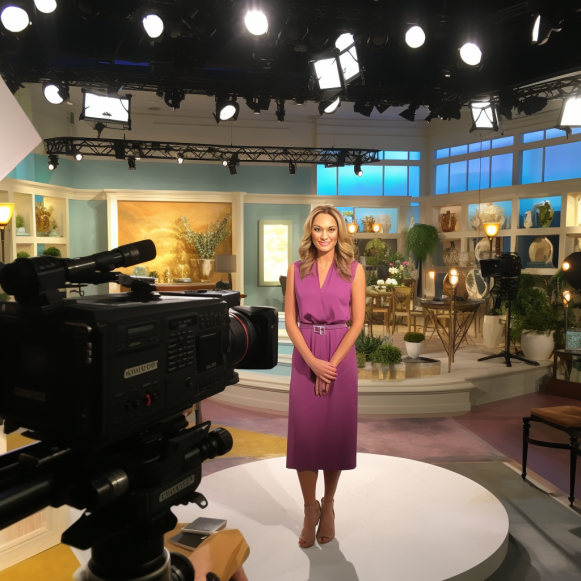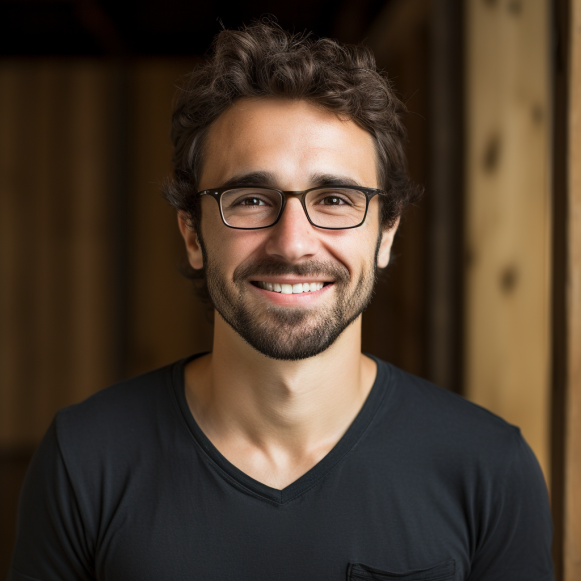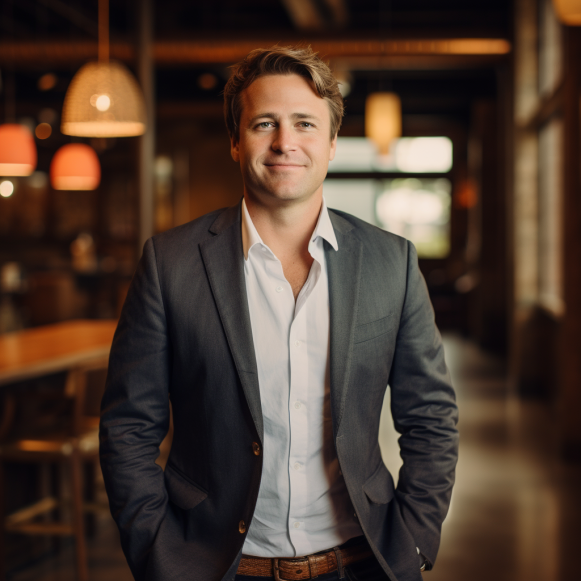QVC helped pioneer shopping from home. Here’s how the company is changing — and competing against TikTok

Company rushing to get merchandise into streaming apps, podcasts, and other new media.
QVC and its affiliates developed home-shopping TV from its sprawling, 1,500-worker studio headquarters in Chester County, Pennsylvania, packing channels for more than 30 years with live hosts and celebrities pitching clothing, kitchen goods, electronics, jewelry, and many other products to millions of viewers and filling their orders from suppliers and warehouses.
Today, QVC, the West Chester-based core of Qurate Retail Inc., which includes clothing brands and small shopping channels in the United States, Western Europe, and Japan, is struggling to cover its costs. It is competing in a new world where energetic individuals working from home can reach millions of consumers through quick, slick product posts on TikTok (which QVC also uses) and other smartphone-based media for a surprisingly low cost.
David L. Rawlinson II, Qurate’s CEO for the past two years, who previously ran industrial supplier W.W. Grainger and then consumer analytics giant NielsenIQ, notes that the company has faced and beaten earlier tech-based competition, including when Amazon attempted to launch its own home-shopping programs.
Rawlinson, a South Carolina native, Harvard graduate, and longtime Chicago resident now based in Wayne, believes Qurate will survive because of its “irreplaceable” studios, increasingly efficient video and consumer technology to produce more programming at lower costs, and a core of affluent female repeat customers who spend more each year.
With traditional TV services like Comcast Xfinity losing customers, Qurate has recently launched QVC and its smaller, Florida-based HSN channel on services like Roku, Amazon Free, and Vizio Smart TV, as well as Qurate’s new livestream app Sune. According to the company, computer and smartphone shoppers now account for more than two-thirds of its revenue.
Analysts believe Qurate will be around for at least as long as the company’s major shareholders, Liberty Media founder John C. Malone and Liberty executive Greg Maffei, share Rawlinson’s optimism — and are willing to bet on better times ahead.
Hollywood East
QVC, founded in 1986 by serial entrepreneur Joseph Segel, quickly became an American television icon. Barry Diller, cofounder of Fox Broadcasting, used QVC to launch his own media empire in the early 1990s. Comcast acquired majority control in 1995 and then sold its shares to Malone’s Liberty Media in 2003, valuing the company at $14 billion. Liberty issued shares to the public, but Malone and Maffei retained voting control.
In addition to the West Chester headquarters, the company now employs 19,000 people worldwide, including 2,000 at its Bethlehem warehouse and other eastern Pennsylvania locations.
Celebrity salespeople such as Dolly Parton supplement a slew of in-house presenters who, beginning in the 1990s, drew busloads of eager viewers to its West Chester studios.
“Such a well-known brand. There were tourist lines. “You had to book hotels in advance,” recalls Gary Smith, executive director of the Chester County Development Council. The public tours were discontinued in 2019 due to rising security costs.
Presenters and producers are broadcasting and streaming more content than ever before in Qurate’s home-, kitchen-, and resort-style studios, thanks to the company’s evolving audience platform. This year’s content includes QVC’s second annual full-length holiday film “The Recipe Files” starring Ashlee Simpson.
Many cameras are programmed. Specialists sit in screen-lit control rooms upstairs from the studios, analyzing live data and whispering into presenters’ headsets about which products are selling and which keywords they should speak out loud to help boost sales.Qurate also owns the smaller HSN home-shopping studios in Florida, which compete with it.
At a Nov. 9 investor meeting, Malone and Maffei expressed confidence in CEO Rawlinson’s recent cost-cutting and profit-growth plans.
However, Malone admits that they must do more than just break even: “You don’t want to tread water in business, or the sharks will get you,” he says. “You need growth.”
Seismic shifts in media
“Trends are in our favor,” Rawlinson stated recently. Both media and e-commerce “are shaking out,” and companies with their own studios and warehouses have already proven to be more resilient than online-only businesses.
“We’re in the middle of seismic shifts in the media and a maturation of e-commerce,” he went on to say. “So here we are, with our own ecosystem — a lot of people we’ve trained who understand hosting and production, programming, retail pricing and merchandising.” That will be difficult to replicate. That is the opportunity we have.”
QVC and HSN have approximately 8 million annual customers in the United States, down from 9 million last year. According to the company, a smaller group of the most devoted viewers buys an average of 75 items per year and has been spending more recently.
“There’s a big fight for attention” from consumers in media and retail — fragmented, fast-changing industries, according to Rawlinson, who lives in Wayne and unwinds at Sixers games.
Qurate has accelerated the production of its live and recorded programs as the company rushes to get its merchandise into streaming apps, podcasts, and other new media.
“A lot of our hosts are locals,” Rawlinson pointed out.
Indeed, QVC has established a local network of media and technology professionals, and smaller area businesses such as RevZilla and Turn5 have established their own QVC-style studios and techniques to sell products such as motorcycle accessories or sports-car and truck upgrades.
The company has also expanded its presence in New York, a hotbed of technology and media talent. QVC has so far avoided Philadelphia, but Rawlinson added that “we’re open” to expanding into that city “when we see the need.”
Fire and plague
Since joining Qurate, Rawlinson has led the company through a series of crises that have severely reduced profits:
- In December 2021, a warehouse in Rocky Mount, North Carolina, where Qurate had concentrated its distribution in the United States, caught fire, killing a worker, destroying products, and disrupting deliveries. Because the damage was so severe, Qurate decided not to rebuild. The cause of the fire was unknown. According to Rawlinson, the company has replaced Rocky Mount with a less-centralized distribution system in which “our goods are closer to the customer” and shipping costs are lower. This fall, insurance paid QVC $660 million for fire-related losses, allowing the company to pay down debt and reduce financial pressure, though it still faces $2 billion in debt due over the next three years.
- The pandemic temporarily increased video viewership, but shipping disruptions from foreign suppliers and transportation disruptions in the United States made it more difficult to fill orders.
- Zulily, the Seattle-based shop-by-smartphone company that Qurate paid $2.4 billion to acquire in 2015, lost money on a consistent basis as executives struggled to improve delivery reliability. Rawlinson eventually sold the remaining operations for a fraction of the price paid earlier this year.
This year, Wall Street demonstrated a corresponding lack of confidence in the company. S&P Global Ratings downgraded Qurate’s credit rating in March to CCC+, a junk-level rating that implies bond investors could lose money due to the company’s “potentially unsustainable” debt load.
This contributed to the share price falling below $1 for the first time since the stock began trading in 2006. After sales fell but profit margins began to recover in Qurate’s Nov. 3 earnings report, shares recovered to around 65 cents, up from 40 cents.It is still measured in dimes rather than dollars.
According to Theodore Glavin IV, managing director of Gavin/Solomonese, a corporate bankruptcy and turnaround consultancy based in Wilmington, bankruptcy is not an appealing option.
“If you break it down into component businesses, it’s a broadcasting media company, plus an Amazon-style retailer but without all Amazon’s infrastructure,” Gavin went on to say. These days, those businesses do not command high prices.
“Someone could operate the channels in a more niche market and a scaled-down version,” he said, if they bought it for as little as the share price suggests Qurate is worth. “Or, you are looking at a liquidation.”
“Their primary backers and owners will be key to what happens here,” he said. “At some point, investors are unwilling to throw more good money after bad.” Only they know what that point is.”






